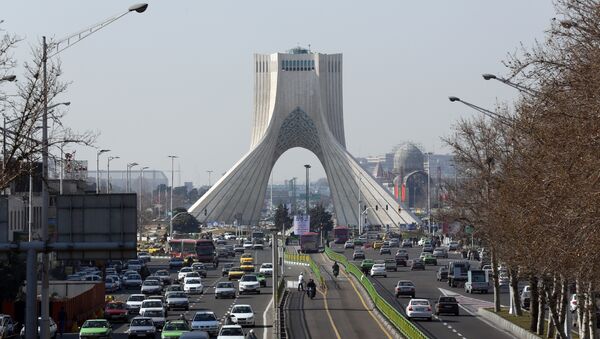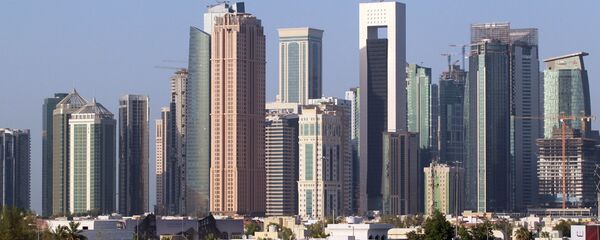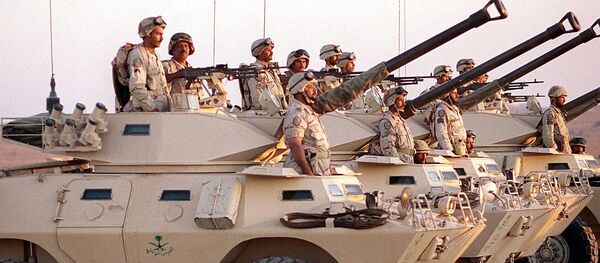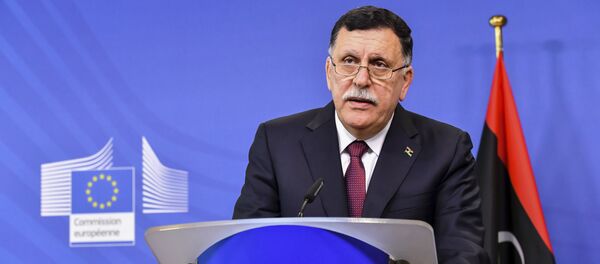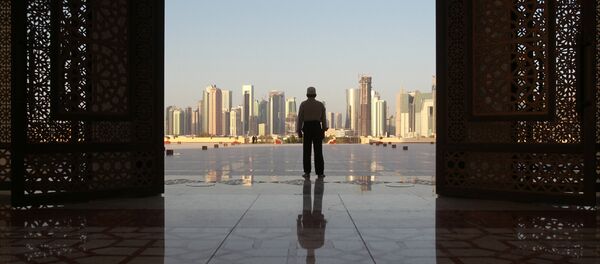In June, Saudi Arabia, Egypt, Bahrain and the UAE broke off diplomatic relations and communications with Qatar, accusing it of supporting terrorism and interfering in their internal affairs. Kuwait acting as a mediator in the crisis, handed over to Doha a 13-point ultimatum, which Qatar refused to comply with.
Meanwhile, the Qatari foreign minister, Mohammed bin Abdulrahman Al-Thani, said Friday that the tiny Gulf nation is ready to hold talks with the four Arab nations if they "respect sovereignty and refrain from interfering in the country’s internal affairs and stick to international laws" in order to make a step towards settling the dispute.
However, the four countries do not seem to be ready for diplomacy. In turn, Qatar has been supported by non-Arab countries, including Iran, and is unlikely to bow to the demands of its Arab rivals.
Sputnik Persian sat down with Vladimir Sazhin, a senior research fellow at the Institute for Oriental Studies of the Russian Academy of Sciences, to discuss the situation around Qatar and the possible role of Iran in the ongoing Gulf crisis.
"The four Arab countries failed to break down Doha in a massive attack on all fronts. The tiny nation rejected the humiliating ultimatum proposed by his opponents. But it was no surprise. In 2015, the International Monetary Fund rated Qatar as the world’s richest country per capita," Sazhin said.
The expert pointed out that Qatar rejected the ultimatum thanks to the nation’s unique economic resources.
The expert suggested that despite the fact that the current situation around Qatar is more or less stable, efforts to escalate tensions cannot be ruled out in the future, especially by Riyadh. However, there are several countries supporting Qatar, including the United States, France, Germany, Turkey, Russia and Iran, and their involvement will further contribute to the easing of tensions.
Commenting on Iran’s involvement in the Qatar dispute, Sazhin said that Tehran "won the battle for Qatar," which will result in the further expansion of Iran’s political and economic influence both in Qatar and across the region.
"Ties between Doha and Tehran are pragmatic. Qatar and Iran jointly control a large gas field in the Persian Gulf. Qatar’s share in its reserves is estimated at 900 trillion cubic feet. According to media reports, this gas field accounts for nearly 100 percent of Qatar’s gas production and over 70 percent of its export revenue. This is why Qatar often has to balance between Iran and the interests of the Gulf Cooperation Council (GCC)," the expert said.
Sazhin added that the Qatar crisis "has split the entire Arab world" and Doha is now on the verge of being forcefully included from the Gulf Cooperation Council. However, according to the expert, this situation is rather negative for Qatar’s opponents, first of all Saudi Arabia, than for Doha.
"Saudi Arabia wants to unite the Sunni Arab world against Iran. There have also been calls to establish an anti-Iranian analogue of NATO in the Middle East. But the current rift within the GCC could derail this plan. Tensions among Arab nations play in the hands of Iran. Tehran is winning again in the Middle East," Sazhin said.
On June 5, a number of countries, including Saudi Arabia, the UAE, Bahrain and Egypt cut diplomatic ties with Qatar and embargoed all sea, air and land traffic to the country, accusing Doha of supporting terrorist groups, particularly the Muslim Brotherhood terrorist movement, as well as of interfering in other countries' domestic affairs. Several other states in the region have reduced diplomatic relations with the country.
The Qatari Foreign Ministry rejected the accusations of Doha's interference in other countries' domestic affairs.
Formally, the crisis was triggered after a Qatari news agency published a statement by Qatari Emir Sheikh Tamim bin Hamad Al Thani calling for the establishment of relations with Iran and expressing support for the Muslim Brotherhood.
Later, the four Arab nations handed an ultimatum to Qatar, which contained a dozen demands Qatar must meet to defuse the Gulf diplomatic crisis.
The 13-point list demanded that Qatar, among other things, cut its ties with Iran, close a Turkish military base on its soil and shut down Al Jazeera and its affiliates. Other demands call on Doha to publically denounce relations with Islamist groups, end suspected financing of terrorism and hand over persons designated as terrorists by Saudi Arabia, the UAE, Bahrain and Egypt.
In response, Doha described the demands as "unrealistic" and "illegal" and urged for them to be revised.

